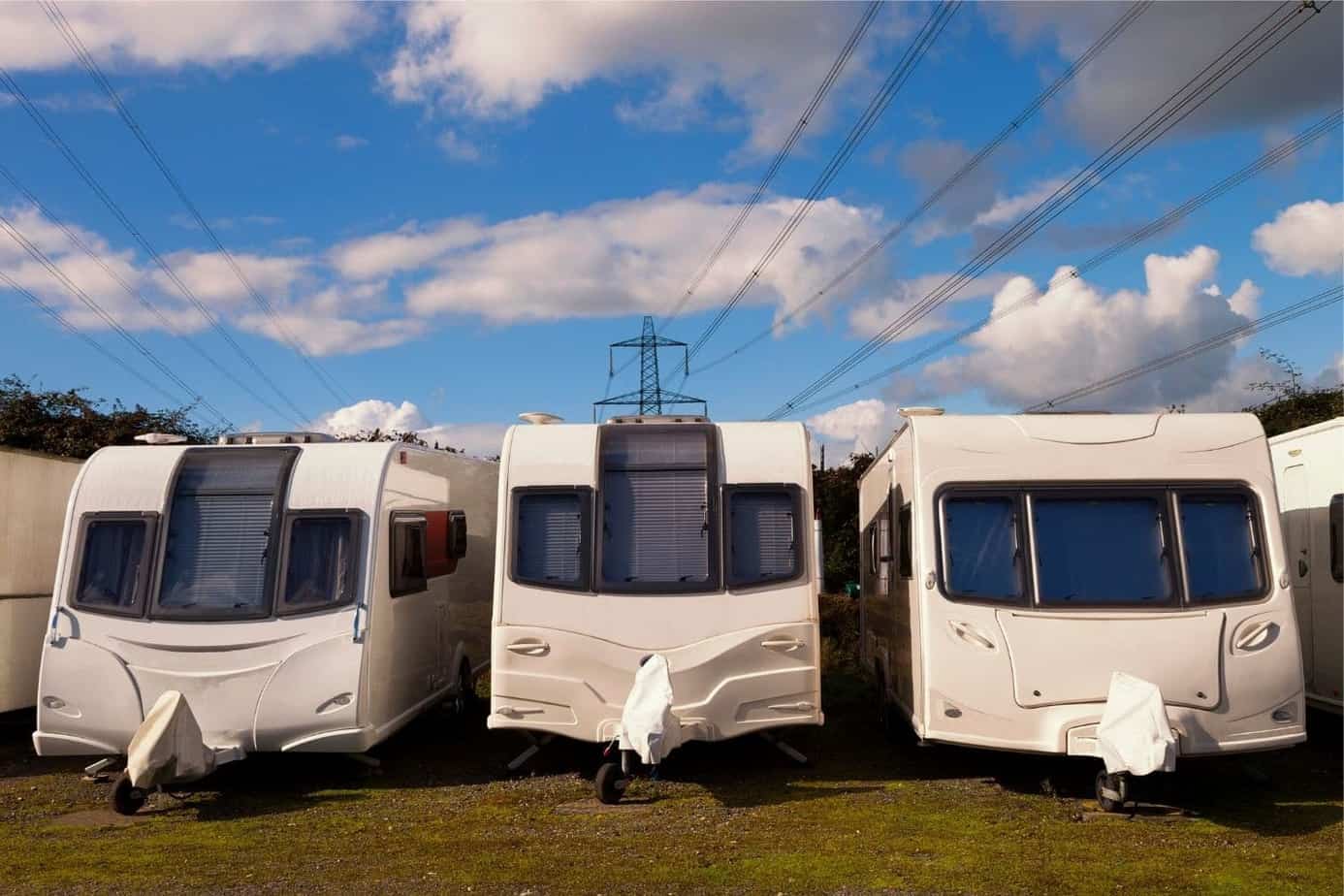Touring Caravan Storage – Where To Store Your Caravan Properly
Investing in a touring caravan gives you the freedom to head off whenever you want. However, you need to know about Touring Caravan Storage.
If you want to escape for a long weekend, plan a family holiday at your favourite location, or explore new horizons, getting a touring caravan is ideal.

But before you buy a tourer, it’s essential to decide on the best place to store your caravan when it’s not in use.
Related Articles:
- Important Tips On Buying A New Touring Caravan
- Which Type Of Touring Caravan Is The Right One For Me?
- A Guide To Hiring A Touring Caravan
Can You Keep A Caravan On A Driveway?

In general, yes, you can keep a caravan on a driveway, but you need to check the property deeds to see if there are any restrictions.
There might be enough room to store your caravan on your driveway with a cover or the side of your house; however, if there isn’t space where you live, there is a wide range of commercial caravan storage facilities available.
Caravan Storage Options
Some points to consider when deciding on a caravan storage option are:
- Is the location well-maintained and convenient for you?
- Are there staff on-site?
- Are the security measures adequate?
- Is there 24-hour access, or are there time restrictions?
- Compare prices with other sites in your area; check for hidden costs.
- Is there a minimum contract for a length of time?
- Is there a contract regarding how long you will site your caravan?
- Are additional services such as cleaning and general maintenance offered?
- Are they fully insured?
- Is there an emergency or out-of-hours contact number?
- Is the site accredited? The Caravan Storage Site Owners Association (CASSOA) represents UK caravan storage site owners across the UK, aiming to provide the best possible security measures. Gold, silver and bronze levels of accreditation are indicators of the level of security you can expect.
How Much Is Caravan Storage?
In 2023, the average annual price for renting a covered storage space in a centre with professional security on site ranges from £400 to £1200.
Prices vary considerably according to the type of storage you choose, the area, the length of storage time, and the caravan’s size, single, double or twin axle.
Most storage sites ask for an annual payment or an additional charge for a half year.
When you have chosen your storage, remember to inform your insurers the premium you pay for touring caravan insurance might change depending on where it is stored when not in use.
Different Types of Touring Caravan Storage
Types of commercial caravan storage facilities include covered, uncovered, campsites and farms.
Covered Storage
Sheltered storage in a barn or warehouse is the most secure option, reducing the risk of damage or theft. It also offers protection from the weather.
Outdoor Storage

This is a cheaper alternative, and while secure storage options are available, there is no protection from harsh winter weather conditions.
There might be a nearby farmer or landowner who offers storage space; however, security should be a priority and should be considered when deciding on a low-cost storage location.
Designed for outdoor use, it’s nevertheless not ideal to leave them unprotected for long periods, nor is it a good idea to store them under trees. Leaves, branches and bird droppings cause damage. A good quality, water-resistant caravan cover protects your caravan from heavy rain and snow, tree sap and UV fading.
Before signing up, visit the site and check out how and where the caravan will be stored.
Campsite Storage
If you have found your perfect holiday park or campsite, there are sometimes options for storing your caravan when not in use.
The advantages are that there is no need to pack up and move your caravan off-site, and everything is ready when you feel like going away.
A further benefit is that there are always people around to keep an eye on your caravan, although campsites will not usually be liable for any damage.
A downside might be that there won’t be protection from bad weather, which could lead to damage at some coastal parks during the winter.







